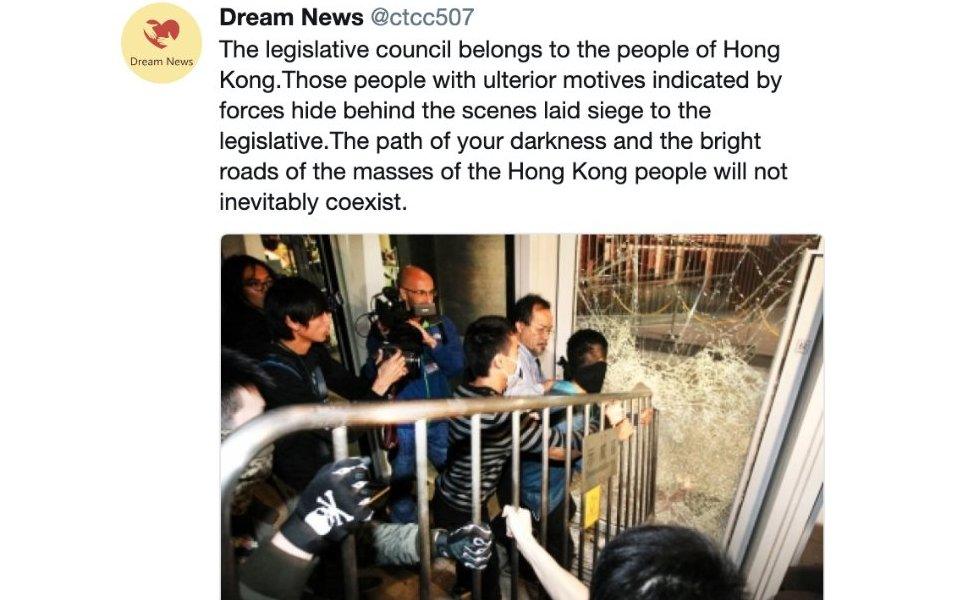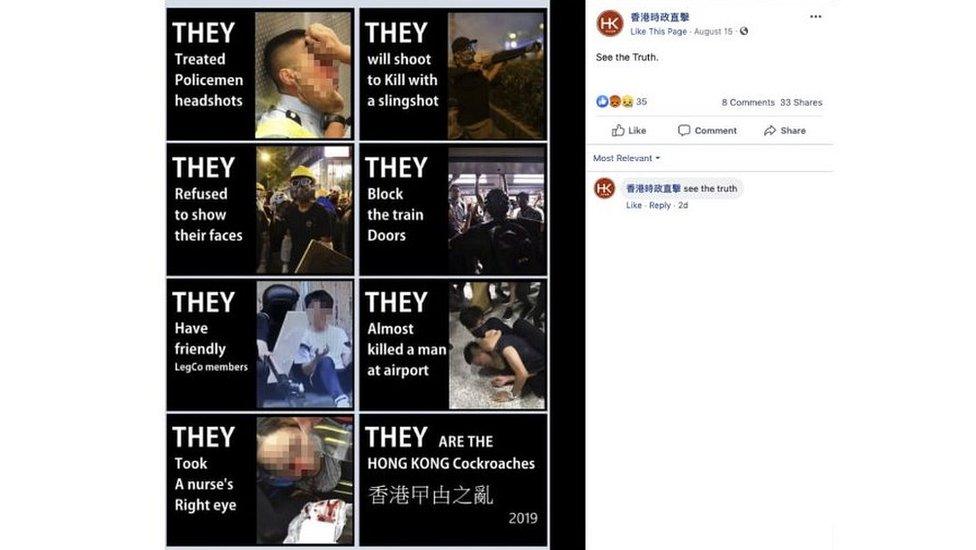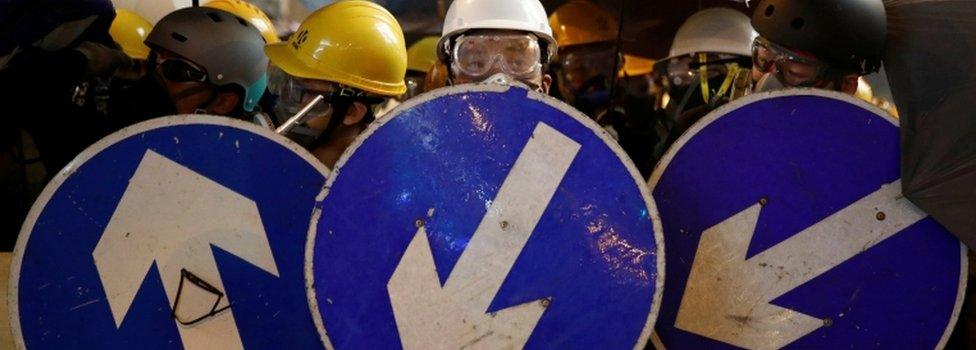Hong Kong protests: Twitter and Facebook remove Chinese accounts
- Published
How Hong Kong got trapped in a cycle of violence
Twitter and Facebook have taken steps to block what they described as a state-backed Chinese misinformation campaign.
Twitter said it removed 936 accounts, external it said were being used to “sow political discord in Hong Kong”.
The network said the accounts originated in mainland China and were part of a coordinated attempt to undermine the “legitimacy and political positions of the protest movement”.
Facebook said, external it had, after being tipped off by Twitter, removed "seven Pages, three Groups and five Facebook accounts.”
"They frequently posted about local political news and issues including topics like the ongoing protests in Hong Kong,” said Nathaniel Gleicher, Facebook's head of cyber-security policy.
"Although the people behind this activity attempted to conceal their identities, our investigation found links to individuals associated with the Chinese government."
In addition to the 936 specific accounts, Twitter said as many as 200,000 other accounts, designed to amplify the misinformation, were “proactively” suspended before becoming "substantially active”.
"Based on our intensive investigations,” the firm said in a statement, “we have reliable evidence to support that this is a coordinated state-backed operation.
"Specifically, we identified large clusters of accounts behaving in a coordinated manner to amplify messages related to the Hong Kong protests.”
It added: "We will continue to be vigilant, learning from this network and proactively enforcing our policies to serve the public conversation.”

Twitter said this tweet was one example that had violated its rules
The move came after Twitter was intensely criticised at the weekend for allowing China’s Xinhua news agency to buy sponsored posts on the network. Twitter said on Monday it would no longer allow such ads, external.
"Going forward, we will not accept advertising from state-controlled news media entities,” the company said. "Any affected accounts will be free to continue to use Twitter to engage in public conversation, just not our advertising products.”
Twitter said the new policy did not, however, apply to "to taxpayer-funded entities, including independent public broadcasters”.
Researchers have begun investigating the flagged Twitter accounts.
They have noted that some were created as far back as 2007 and had switched activities, external over the period, while others were less than a year old.
"A number of these accounts move through numerous tools and many languages, switching after long breaks," wrote Renee DiResta, a Mozilla fellow in media, misinformation, and trust, external.
"[It] suggests at least some of the old/high-follower ones were purchased, or potentially rented.
"But to contrast with the 'Russia playbook', these weren't carefully-aged, well-developed persona accounts that worked narratives or built relationships with influencers."
For its part, Facebook has said that about 15,500 accounts had followed one or more of the pages suspected of being "inauthentic" on its platform, and about 2,200 accounts had joined at least one of the flagged Groups.

Facebook shared this graphic as an example of the material that had been posted on the seven flagged Pages
Some have now called on Google to take action of its own to restrict state-backed propaganda uploaded to YouTube.
The company told the Reuters news agency in June that state-owned media companies, external had the same rights as other users to run ads on its platform.
The BBC has asked the firm to comment.
What are the protests about?
Many thousands of Hong Kongers have been protesting since March against a proposed government bill that would have allowed extradition from the territory to the Chinese mainland.
Critics of the bill argued that it would undermine the Hong Kong's judicial independence and could be used to target those who speak out against the Chinese government.
The bill was suspended in June after a series of large demonstrations. But protests continued and have now morphed into a broader movement demanding democratic reform and an investigation into alleged police brutality during demonstrations.
Last week, thousands of protesters flooded Hong Kong Airport's terminal buildings, leading to clashes with police and the cancellation of hundreds of flights.
Organisers say 1.7 million people turned out at the latest mass-rally on Sunday. But police put the figure much lower at 128,000, counting only those at an officially sanctioned protest.
The Chinese government has hardened its rhetoric following the airport unrest, condemning it as "behaviour that is close to terrorism".

Understanding the Hong Kong protests

Summary of the protests in 300 words
All the context you need on the protests
Timeline of events so far
The background to the protests in video
More on Hong Kong's history

Additional reporting by Leo Kelion
